All previous chapters are listed chronologically in the Bartle Clunes archive. CLICK HERE
There was a flurry of decision making and manual labor in the hills of El Dorado County in early November. Bartle and Louvina set their wedding for November 11 at the courthouse in Placerville, giving themselves only ten days in which to change their minds. So far, neither mind was changing.
“I don't want any sort of party,” she told him. “Let’s just stay one night at the old Cary House and have dinner in their fancy dining room. That would make me happy as can be.”
“Well, that is good to know, Louvina, because I have not been with a woman for a long time, and I want to make sure you are happy about something,” he said. “I mean, just in case your first night alone with me is somewhat less than what you've dreamed of.”
Louvina laughed at his feigned timidity. “You are being just plain silly now,” she said. “Don’t you worry, we will figure it out.”
They decided they would live in Louvina's house, as it was the bigger of the two homes. However, Bartle did tell her, “As a man of forethought, I won't sell my place unless I have to. I am thinking it will provide a quiet refuge for me on the days when the women around this house become particularly fractious.” Louvina raised her eyebrows and said only, “Good idea.”
They didn’t waste any time. They began straight away making a place for Ayla, spending the most of three days fixing up Louvina’s other bedroom, painting the walls blue, making new curtains. The bedding was freshly laundered and mended, the wardrobe and dresser cleaned out, the floor scrubbed. Louvina put dried lavender into the drawers. Aunt Celia's handmade quilt, wrapped in paper and stored away in the chest over six years, was aired out and put on Ayla's bed.
Saturday morning Bartle received a letter from Wyoming. He tore open the envelope and, with a slow intake of breath, read aloud to Louvina.
Dear Daddy,
Thank you for sending money for my train fare and for asking me to come. First, I need to go back to Idaho Falls to clear out the house where we were staying. Then I can come to you. I hope to get the train to Sacramento sometime around November 20. I will let you know as soon as I have the ticket.
Your daughter, Ayla
“Thats only three weeks.” he said. “Three weeks! Dear Lord, are we ready for her?”
“You bet,” answered Louvina, kissing him. “She could come tomorrow and we’d be ready.” Bartle sat down at the kitchen table, where he did his best thinking.
“I also got a card here from Montgomery Ward. They have the linoleum in and will deliver it to us on Monday. Maybe we should just put that away for a while? Tend to it later?”
“No,” he said. “Let’s get that done. I will go see Lonnie, over at the general store tomorrow. He helped build my chicken coop and was right handy. He is a good kid, and I know he will come help us. It is not hard to do, but moving everything out is just faster and easier with two men. We'll get it done in a day.”
Lonnie, who was twenty-one and a good-natured young man, came on Tuesday ready to work, an eager smile on his handsome face. He'd always admired Bartle, enjoyed their lively conversations. Louvina had prepared a picnic lunch a day ahead of time. She set out cold fried chicken, potato salad, pickles and lemon cake in the living room for them. Maggie nosed around the table a bit, but minded his good-dog manners.
Lonnie liked working with Bartle. About ten o’clock he'd just started singing, and Louvina joined him in harmony to ‘The Church in the Wildwood’. They were both good singers. Bartle requested ‘Bringing in the Sheaves’ and they all sang as they worked. Maggie had been put outside for helping himself to a chicken gizzard from the platter on the table, and sat in the doorway mournfully peering in through the screen door, looking like he’d invented the term ‘hang-dog’.
The men worked steadily and were finished by three o'clock. The new floor sparkled like sun on water. Louvina was delighted. Bartle hoped he would eventually get used to the kaleidoscopic pattern.
Louvina herself had passed the entire day coming up with presentable clothing for her wedding day. She had rummaged around in the cedar chest and found a green wool dress that she had probably not worn since 1945. It was still in good shape, but even a woman of her limited fashion sensibility knew it was out-dated. She removed the collar, altered the big shoulders, shortened the sleeves and raised the hem. She emptied the blue Mason jar filled with buttons into a bowl, sorted through them, and found six small pearl buttons. She sewed them down the front of the bodice, just for show, thinking they looked quite smart.
Then she found her little white furry hat, with a slightly crumpled silk bow on it and borrowed a pair of short white gloves from her neighbor, Filomena. As for Bartle's wedding finery, Louvina just told him, “You are on your own, Mr. Clunes.”
On November 11, Bartle dressed in his best jacket and trousers and put on a blue tie. He decided against his old hat and left it at home. He looked quite credible, dashing even. “Well, we don't want to go into the courthouse looking like a couple of hicks now, do we?” he said.
They pulled up in front of the El Dorado County Courthouse about ten o'clock, where they were wed by a justice of the peace, with two clerks standing by as witnesses. They said their ‘I do's’ and signed the papers. Louvina asked one of the witnesses to take a couple of photos with her Brownie box camera to preserve the moment for whatever posterity might be interested.
They drove down Main Street to the four story red brick building that was the old Cary House Hotel, an imposing structure with a façade composed of graceful archways. The lobby was wide and nicely carpeted. Sturdy carved wooden beams decorated the ceiling, and scenic stained glass was featured in the main windows facing the street. Off to the side was a small restaurant with starched formal white linen and wine glasses on the tables all set for the evening meal.
Though their room was only on the second floor, Louvina said, “Let's take the elevator!” The ancient lift, with its folding metal gate and swing-open door, had just enough room for two people and two small bags. “This is no doubt the tiniest and noisiest elevator in the entire country,” observed Louvina. “Maybe even in the world.” She was having a great time.
They found their room to be comfortable and clean, with a big mahogany bed, one chair and one small walnut dresser. An old-fashioned pedestal sink stood in the corner, with a tiny glass shelf above it on which rested a miniature bar of Lifebuoy soap and two drinking glasses. Bartle studied an odd framed ornithological engraving of a dodo that was positioned next to the window.
“I cannot make heads nor tails of this picture, Mrs. Clunes. I have to say it seems an odd choice to hang in a bedroom.”
Louvina peered at it and said, “Well, somebody really liked that picture, Bartle Clunes. There is no accounting for taste. Why … consider who it was you just swore to love and cherish until the end of your days.”
They passed the rest of the daylight hours strolling arm and arm through the chilly streets of old Placerville, passing historic brick buildings, looking in windows, stopping for coffee and pie in a small cafe and, in general, appearing like the sort of married couple who didn't have to work for a living and who had perfected the art of leisure.
In the evening, as they passed through the lobby to have their wedding dinner, Louvina's eyes were drawn to an empty alcove on the right which held only a piano and one potted fern. She was pulled to it as if by a magnet. She sat down on the bench, ran her hands lightly over the keys and looked around to see if anyone of authority would object. Finding no one paying any attention to her at all, she began to play. Bartle's breath was suspended for an instant. Chopin. He asked for an encore and she played with such sweetness, chills ran up his spine.“ I have much to learn about the woman I just married,” he said to her. Frankly, he had no idea what else he would learn that very night.
They had a fine evening of candle light, superb service, and food they would never cook for themselves, such as broiled sirloin and mushrooms, chicken in wine sauce. Before retiring to their room, they went to the lounge for a dram of good Scotch whiskey to toast what had turned out to be a very good day. They sat in a dark green leather-upholstered banquette, reveling in each others’ closeness, his arm against hers, her thigh against his. They talked about nothing for a while, then they rode the elevator up again.
In the room, Louvina modestly changed into a white nightdress with rose embroidery at the neckline. Bartle changed into brown pajamas, admitting to Louvina he'd never worn them before, though he had had them for several years. Louvina combed out her long red hair, which Bartle found so beautiful he had to go over and run his hands through it. He got into bed on his side, she on hers.
Growing quite sober, Bartle gathered his wife into his arms, and pulled her to him. “Louvina, you and I have both lived with no companion for a long time. If you are at all shy of me and if you want to wait and just be together quietly tonight, I understand. Whatever you want is what I want too.”
Louvina smiled at him and said, “Thank you, Bartle.” However, he discovered she was not shy of him, and apparently felt she had already waited long enough. An hour later, Bartle realized he may have gotten a little more than he'd bargained for in Louvina McBean and he fell asleep a happy man.

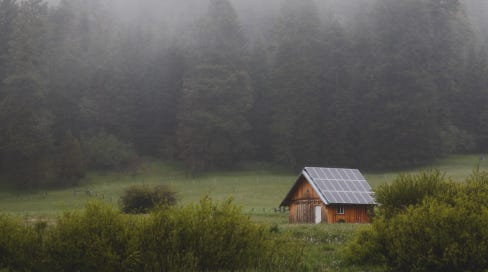



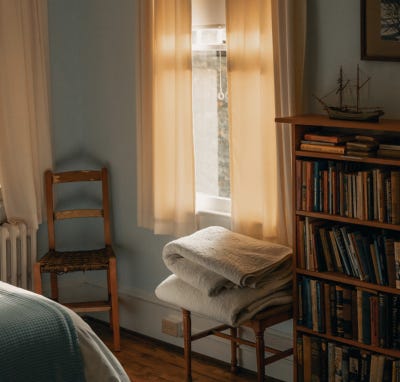
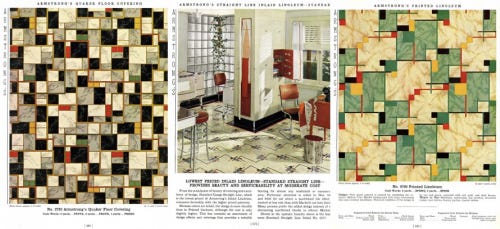
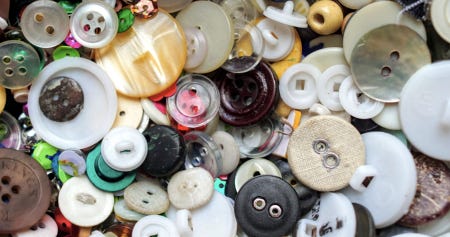
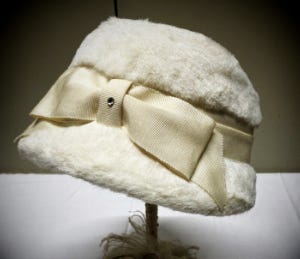
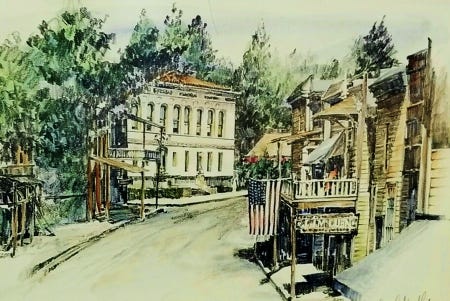
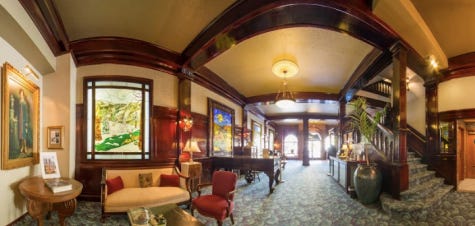
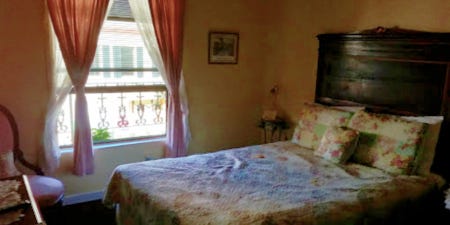
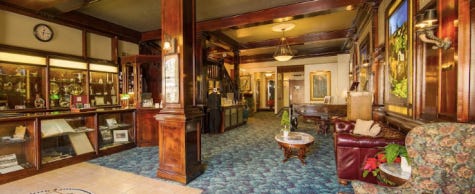
I am thoroughly enjoying your novel, the understated, but realistic details capture my heart and you don't shy away from the realities of life in 1949.
A little like your own personality??
A perfect day.